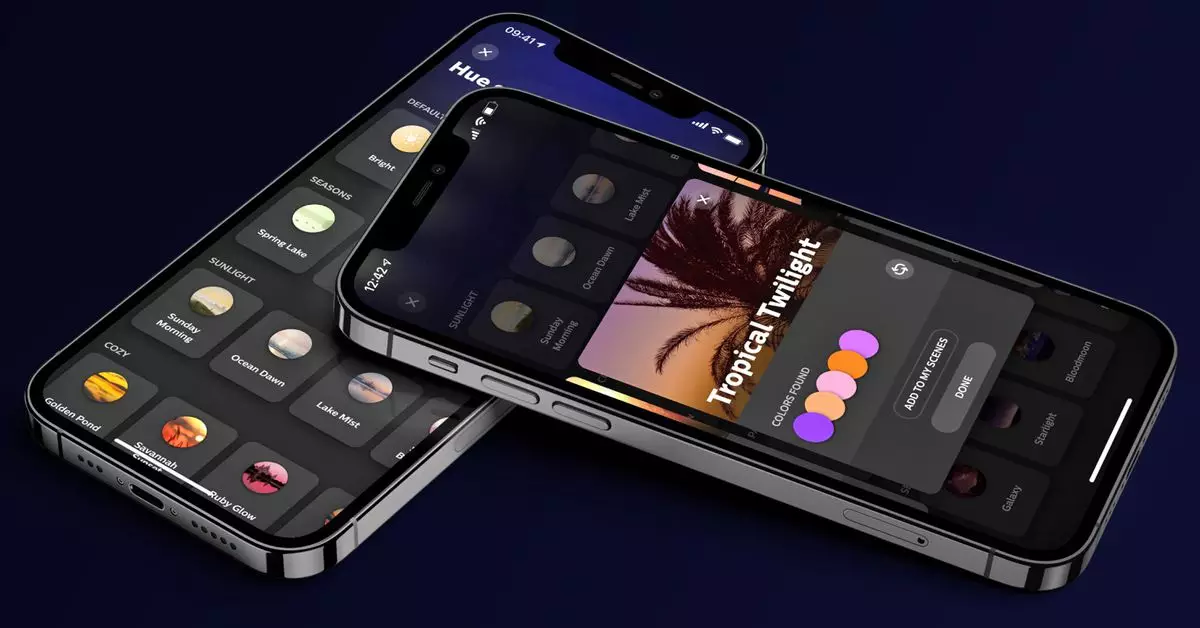Philips Hue, a leader in smart lighting, has recently announced an innovative addition to its product line: an AI-powered lighting assistant. This new feature promises to revolutionize the way users interact with their lighting solutions by enabling the creation of personalized lighting scenes tailored to specific occasions, moods, or styles. By simply typing or speaking commands into the Hue app, users can request unique lighting settings—such as “create a scene for a cozy movie night”—and receive customized suggestions or entirely new scenes, enhancing the ambiance of any environment.
The introduction of this generative AI feature reflects the growing trend of integrating artificial intelligence into home technology. Users are increasingly seeking systems that offer adaptability and personalization, allowing for an immersive experience in their living spaces. Philips Hue is not the first to harness AI in this realm; competitors like Govee and Nanoleaf have pioneered similar concepts. However, Philips’s approach—combining both typed commands and voice activation—positions it as a frontrunner in creating an accessible and interactive user experience.
In addition to crafting unique scenes, the Philips Hue AI assistant will facilitate adjustments to existing lighting setups, addressing aspects such as brightness and color. This feature further streamlines user control, enabling seamless transitions from one lighting ambiance to another without pre-programmed settings. It is expected to be compatible with all Philips Hue products, making it an inclusive upgrade for existing users of the system. Despite the excitement, specific details about the rollout—scheduled for the first quarter of 2025—remain scarce, leaving many eager users anticipating its release.
The launch of the AI lighting assistant coincides with other key announcements from Philips Hue. The brand also revealed that its popular Hue Sync TV app will be compatible with LG TVs, allowing for synchronized lighting effects that enhance the viewing experience. Moreover, the introduction of the Philips Hue Datura ceiling light at a starting price of $299.99 signifies the company’s commitment to evolving its product line with innovative and stylish options that cater to contemporary design trends while offering customized lighting solutions.
As Philips Hue embarks on this new chapter with AI integration, the implications for the smart home market are significant. The company’s efforts could catalyze a broader adoption of AI technologies within home lighting systems, pushing other brands to elevate their offerings in response. It remains to be seen how users will react to this new assistant and whether it will redefine their interactions with light in their homes. The focus on delivering personalized experiences through technology underlines a growing desire for homes that reflect individual preferences—where lighting adapts not just to tasks but also to the myriad of emotional and social contexts in which people live.


Leave a Reply